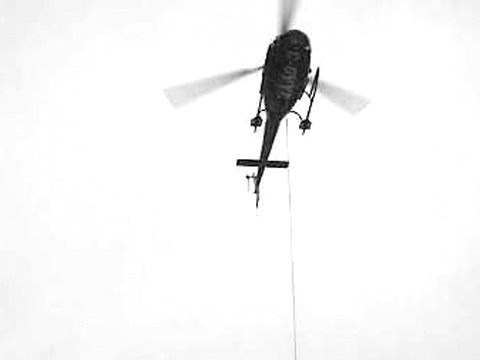Restrictions at the Whistler Health Care Centre helipad are putting critically injured patients at greater risk, according to a Whistler Search and Rescue member.
Brad Sills, manager of Search and Rescue, said that H3 helicopter status is needed at the helipad in order to provide the most efficient care.
"It just strikes me as odd that these are issues of life and death and that they seem to have fallen down on the priority list," said Sills.
"When we talk about parks, pay parking and things, there are people who are actually going to suffer a very harsh reality here if we don't get on with this.
"We have so many excellent health care practitioners here, and our standard is so high that to allow this to go by the wayside is - I don't understand why we're not moving on this now."
Last week, a rescue effort made by Search and Rescue was impeded when a patient had to be flown to the municipal heliport, located past Emerald, and driven by ambulance to the Health Care Centre due to restrictions on the twin-engine helicopters used by Search and Rescue.
Vancouver Coastal Health (VCH) spokesperson Trudi Beutel said that H3 status is not yet a priority in the short or long term.
"We are positive that right now we can operate within the parameters of H1 and H2, which is our ultimate goal," Beutel said.
"In order to achieve it (H3), we have to cut down a lot more trees to get the correct flight path angle than we would need for H1 or H2. Right now, the result would just be devastating and the need has been looked at," she said.
The decision to grant helicopter status is determined by Transport Canada. Sills said he's concerned about the emphasis Transport Canada has placed on the need for an emergency crash pad for the helicopters. This has trumped the definite reality that people will die if health care professionals don't get patients in and out of the Whistler Health Care Centre as quickly as possible, suggested Sills.
"It's like you're weighing a possibility against a probability and I don't understand how they arrive at the mathematical equation," said Sills.
"It doesn't make sense to me."
Since November, VCH has been in the process of securing H2 status after Transport Canada audited the helipad the previous December and determined that upgrades were needed.
Currently, Transport Canada has secured temporary H2 status until the end of winter, on the condition that VCH had promised to complete all Transport Canada's necessary upgrades in 2011.
These included the removal of trees between Day Lot 4 and Lorimer Rd, the lowering of streetlight posts around the helipad, and a permanent traffic management plan at the Blackcomb Way/Lorimer Rd. intersection that would stop traffic when a helicopter is landing.
Whistler Blackcomb parking lot attendants are currently handling that task and, Beutel said, construction for the permanent infrastructure will likely begin late spring with a "tentative" completion date by mid- summer 2011.
She said the helipad would be fully functioning by the 2011 - 2012 ski season.




